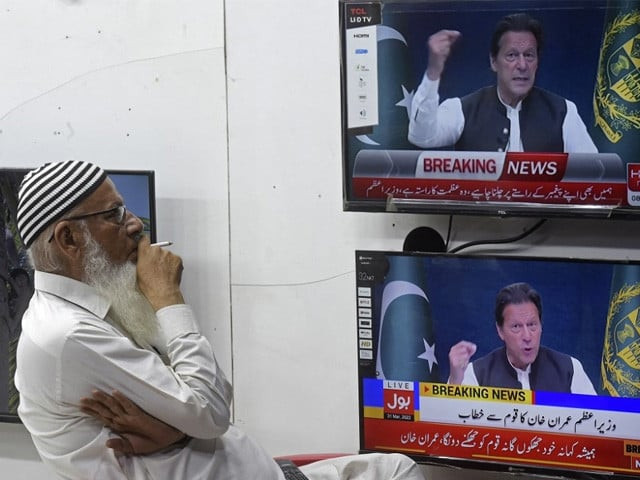A free market should not be unnecessarily interfered in but that does not mean it should be left at the mercy of manipulators. Newly-appointed Finance Minister Ishaq Dar’s recent statement about managing the exchange rate is quite interesting and should form the cornerstone of our strategic policy, but it reminds us of our national hallmark: we prefer our personal interests over national ones. Therefore, I suspect we will continue to remain the way we are.
Our so-called leaders have not been successful in setting personal examples and we are intrinsically interested to exploit opportunities at whatever cost. National causes demand personal sacrifices; greater policy means pain in the short run. Our politicians have arguably failed us; our young generation is getting habitual to propagated fallacies and engineered truths. Our country is being increasingly surrendered to foreign regulations, loan and donations, and our usual complacency coupled with reactive response will continue to guide our national policy.
For Pakistan, it is somehow prospective that the floods have finally subsided; the International Monetary Fund (IMF) loans have concluded and our old finance ace has landed with hopes of the old tricks to work. The perils are that we would again miss the opportunity to re-think our strategic response to eventualities, while our political system’s fabric would continue to gradually erode before us, losing its already meagre credibility amid spell bounding ingenuity of the audio leaks.
Luckily, for those responsible for the infrastructure, the floods wiped away the footprints of their incompetence and as it happens, natural calamities are beyond human control, so we can hide behind the excuse that no infrastructure can be guaranteed to withstand a calamity of such a scale. But unfortunately, for the victims, it remained a dreadful experience and will confound our fiscal miseries for some time to come. For the urban population, the effect of a rural flood would mean further inflation in addition to food shortages.
Negative externalities loom and these conditions draw risks of both micro and macro nature in the upcoming months.
Pakistan’s exports will bear a hit in short-term as the supply side constraints will be observed due to the floods’ aftermath. Interest rates may remain higher due to supply-side induced inflation and confidence in recovery of the economy may continue to remain grim. Natural calamities will come unannounced, but our preparation and response should carry some strategic content. This time again, we would rely on few million dollars flowing in as foreign aid, some loans restructured, and slowly and gradually, we will recover to our usual normal, which is absolute complacency. Ideally, however, we should focus on building our capacity to withstand the jeopardies of such circumstances, God forbid, if the same happens within next few years, again.
The IMF conclusion was supposed to bring respite to our economic miseries, but the money came in, evaporated, and the much-desired investor confidence still remains chronically ill as the political circus continues. It does not take a genius to figure out that markets need stability and in order to prosper, a country where the dollar would swing both ways unexplainably, where a province could have a new chief minister every week, where you would play bets on a court’s next decision – anything can prevail except common sense. The IMF came, euphoria fizzled and we are back to our normal state of affairs – complete instability.
Why is this incessant political instability always surrounding us? Because we are under continuous tyranny of a few whose substance is never sufficiently understood – the majority. Democracy is made up of 51% majority and 49% minority. Ideally, this provides legitimacy to the 51% to govern the country as per expectations of the voters, but we take it too far in execution; tyranny of those in majority would render 49% pariah in the setup. The minority could have nothing to do with how the country is run for the next five years and the government’s prime objective, it seems, is to just build a web of enquiries around the opposition. This cornered minority could then have only one liberty: collude with the establishment, win over their whims or bow to their wishes and ploy the 49% to become the 51% somehow and return to power. The tussle, in between, may cost the country dearly but no one seems to care.
Previously, the Pakistan Tehreek-e-Insaf’s (PTI) regime promised to correct everything within 90 days, and then its outsized promises collided with realities. The rest is history, considering COVID-19 interrupted us further and PTI was just fire fighting for three years in their power, which ultimately led to their popularity to gradually dip to the ebb. The opposition assembled, surged in the meantime or was arguably helped to replace PTI after which we saw how Imran Khan’s political wits helped him twist his ouster to be so unjustified despite his below-par governance.
Now, we are a nation with a popular Imran and a relatively less esteemed host of parties. In between, there is the invisible establishment and an unsavoury mess of events around us. We are still not sure when the next general elections will be held. How would the loser digest the result of the next elections?
More importantly, how would those powers allow Imran to come back into power unceremoniously if the nation votes him in again? While the media and politics is flourishing, the country is getting weaker amid terrifying political polarisation. Dar has arrived with our political plight seemingly no different yet, and what he is about to do is yet to be witnessed. Perhaps a wider political dialogue can allow some sense to prevail, otherwise, instability will keep haunting us and even if the angels come to rescue us, the situation will not be much different that it currently is



COMMENTS
Comments are moderated and generally will be posted if they are on-topic and not abusive.
For more information, please see our Comments FAQ